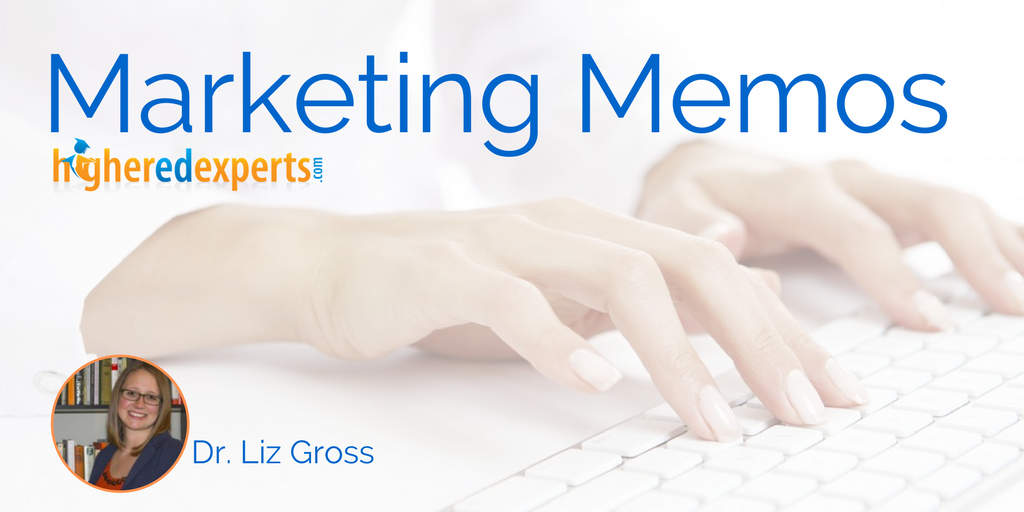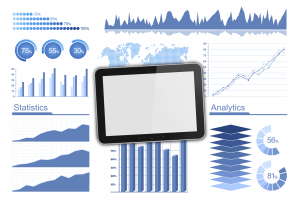
Measuring the Impact of Teaching Measurement 😉
 I’ve taught the Higher Ed Experts’ social media measurement class for two years and half. Dozens of students from three countries, working in functional areas including admissions, alumni affairs, career services, development, marketing and communications, and academic program management, have devoted four weeks to improve the measurement of their social media program.
I’ve taught the Higher Ed Experts’ social media measurement class for two years and half. Dozens of students from three countries, working in functional areas including admissions, alumni affairs, career services, development, marketing and communications, and academic program management, have devoted four weeks to improve the measurement of their social media program.
I don’t teach this course anymore (2 of my previous students do now), but I’ve enjoyed spending my nights and weekends with these great higher education professionals, particularly because this gig follows me wherever I go — I’ve graded assignments overlooking beautiful Mount Hood, in a London pub, at 30,000 feet, and from my living room couch.
It turns out that I love teaching. From designing the course content, to jumping into weekly discussions, and yes — even grading — I felt honored to have the chance to provide my students, all marketing and communication professionals working in higher education, the opportunity to increase their knowledge and capacity in ways that prove immediately valuable for their work.
Looking back on the last two years and half, I wanted to share with you a few of the things my students have taught me.
There Is No Correlation Between Age and Social Media Skills
I’ve taught students in their early twenties to their fifties (maybe older — age is not something I ask my students about). Many of my star students are definitely in the second half of their professional career.
Too often, I see campus leaders assume that young people will provide the keys to social media success because “they just get it.” In reality, as social media becomes part of the strategic work of marketers and communicators, it requires more than just the ability to rock Instagram filters and use all the best hashtags.
Critical thinking, innovation orientation, organizational strategy and acumen, and mission and vision alignment are also important for social media success. These skills can be found in professionals both young and old, but age alone should not qualify or disqualify someone from contributing to your social media program.
Higher Ed Marketers Still Struggle With Goals — Especially For Social Media
The first week of the course I’ve taught focuses on defining and aligning goals, strategies, and tactics. The first discussion prompt includes the question, “What are the goals of your social media program?”
At least half of my students indicated that they don’t have any strategic goals, or leadership had never articulated them. Some were even unclear of the broader goals of their department. After some reflection, however, everyone was able to craft goals that they would be proud to share with their university president.
It just takes some time to be thoughtful and intentional… something we’d all ideally do when starting a social media program, but it’s never too late to go back to the basics — nothing like a graded assignment to give you the extra push you need 🙂
We All Benefit From Feedback and Constructive Criticism
I was an instructor, but since my lessons were so relevant to the day-to-day work of my students, I took the approach of a coach when providing feedback on weekly assignments.
I asked a lot of clarifying and reflective questions, pointed out strengths and weaknesses, reminded students about the foundational principle on which the course is built, and challenged them to push themselves further each week. Getting this feedback privately, outside their work environment, gave them a chance to try new things and take some risks on the assignments, which can easily become work product.

I’ve seen incredible growth in the four weeks it takes to progress through the course. All professionals should have a chance to get this sort of constructive feedback.
Communities of Practice Are Vital For Higher Education Professionals
More often than not, my students shared that they were a “team of one,” solely responsible for the planning, execution, and assessment of social media for their campus or department.
The chance to discuss challenges and successes with colleagues in similar situations at other campuses is almost as valuable to them as the course content! I was glad to see other opportunities for this emerge through the #hesm and #casesmc hashtags on Twitter, and Team HESM on Slack (talk to Jonathan Gabriel if you want to join).
It’s getting harder and harder for leaders to question whether or not campuses should have a social media presence — but it needs to be strategic.
As social media becomes entrenched in the tactic toolbox for higher education marketers (and a budget line with the rise of paid placement), measurement will be more important…and the combo fans/followers + reach is not going to cut it. Higher ed pros around the world should learn to measure what matters in their social media program… even <gasp!> Snapchat.
Meet the Author: Dr. Liz Gross
Dr. Liz Gross is a graduate of the Higher Ed Experts Web Analytics certificate program. Higher Ed Experts is a professional online school for digital professionals working in universities and colleges.
When you take a professional certificate course with us, you get a chance to upgrade your skills by working on your projects, interacting with classmates just like you and getting detailed personalized feedback from your instructor.
Dr. Liz Gross is now the director of Campus Sonar, a social media listening consultancy.
Liz received her Ph.D. in Leadership for the Advancement of Learning and Service in Higher Education from Cardinal Stritch University. Her dissertation research examined the relationship between communication methods and the frequency and content of college student interactions with faculty.
She also taught for 2 years and half Higher Ed Expert’s 4-week online course on Social Media Measurement for Higher Education.
Tags: Higher Ed Marketing Memos, Higher Ed News